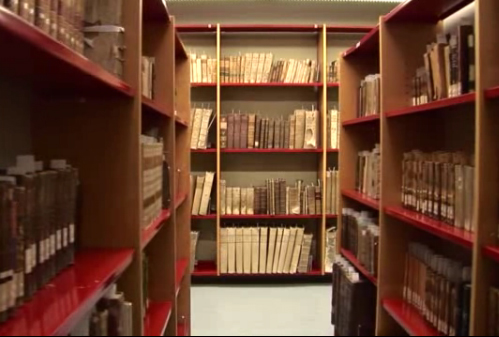- TransJus
- Research institute
Av. Diagonal, 684 - Ilerdense Building, room 115
- 08034 Barcelona
- Office hours:
- Tuesday and Thursday
- from 11:00 to 16:00
-
(+34) 93 403 45 48
TransJus is a research institute of the University of Barcelona headquartered in the Faculty of Law. Here more than 60 scholars and academic researchers of all legal areas, Criminology, Management, Public Administration, Labour Relations and Political Sciences, can find a space of transdisciplinarity for joining synergies in the ambit of seminars, congresses, workshops, debates and publications.

One of the main objectives of TransJus is to establish a space for research which, without replacing individual research, would allow the interaction of disciplines of the diverse branches of Law and Political Sciences, as well as other disciplines like Psychology or Economics.
Furthermore, the aim is to integrate this research transversally at the international and European level.
By emphasizing joint research, TransJus seeks to achieve a better use of resources, an intellectual and scientific production with its own quality distinction and a highly internationalized and interdisciplinary research.
Hence, the cooperation between researchers from different areas -both disciplinary and territorial- is a fundamental challenge in modern times and TransJus is seen as the generator of the necessary infrastructure for this cooperation.
Presently, it is important to provide a new impulse to the research conducted at the Faculty of Law. This project does not intend to replace the groups and the existing teams, but to enhance their interaction and the integration of their efforts, as well as to facilitate, by means of appropriate administrative infrastructure, both the obtaining of resources and research management. It seeks to enhance the affiliated researchers synergies and, above all, to promote a transversal treatment of the objects of study.
Such transversality is promoted from horizontal and vertical points of view. On one hand, the horizontal analysis aims to approach research from a diversity of disciplinary perspectives, in such a way that overcome the fragmented treatment of problems.
This would permit enabling a more accurate and appropriate analysis of the social reality which is a previous condition in order to propose more effective integral solutions. This approach is increasingly necessary because, as is evident also in other fields of knowledge, the most interesting and leading research topics are often found at the intersections of different branches of knowledge.
Transversality in the horizontal sense means doing research involving different areas of knowledge in one discipline and also in different disciplines. This means that two disciplines could be present in the Faculty such as Law and Political Sciences. This also implies the opening of the Institute to disciplines outside the Faculty, such as Psychology or Economics.
Transversality in this horizontal sense connects with the tradition of the Faculty due to its having developed important initiatives in the field of Political Sciences and Economics.
On the other hand, the vertical analysis attempts to integrate the different levels of regulation that characterize contemporary legal ordinances. This puts special emphasis on international and European levels.

Suggested Links
![]() UB Links
UB Links
- Universitat de Barcelona
- Facultat de Dret
- Biblioteca UB
- Intranet UB
- Projecte dret al Dret
- Instituts de Recerca
hits since 29/01/2019



